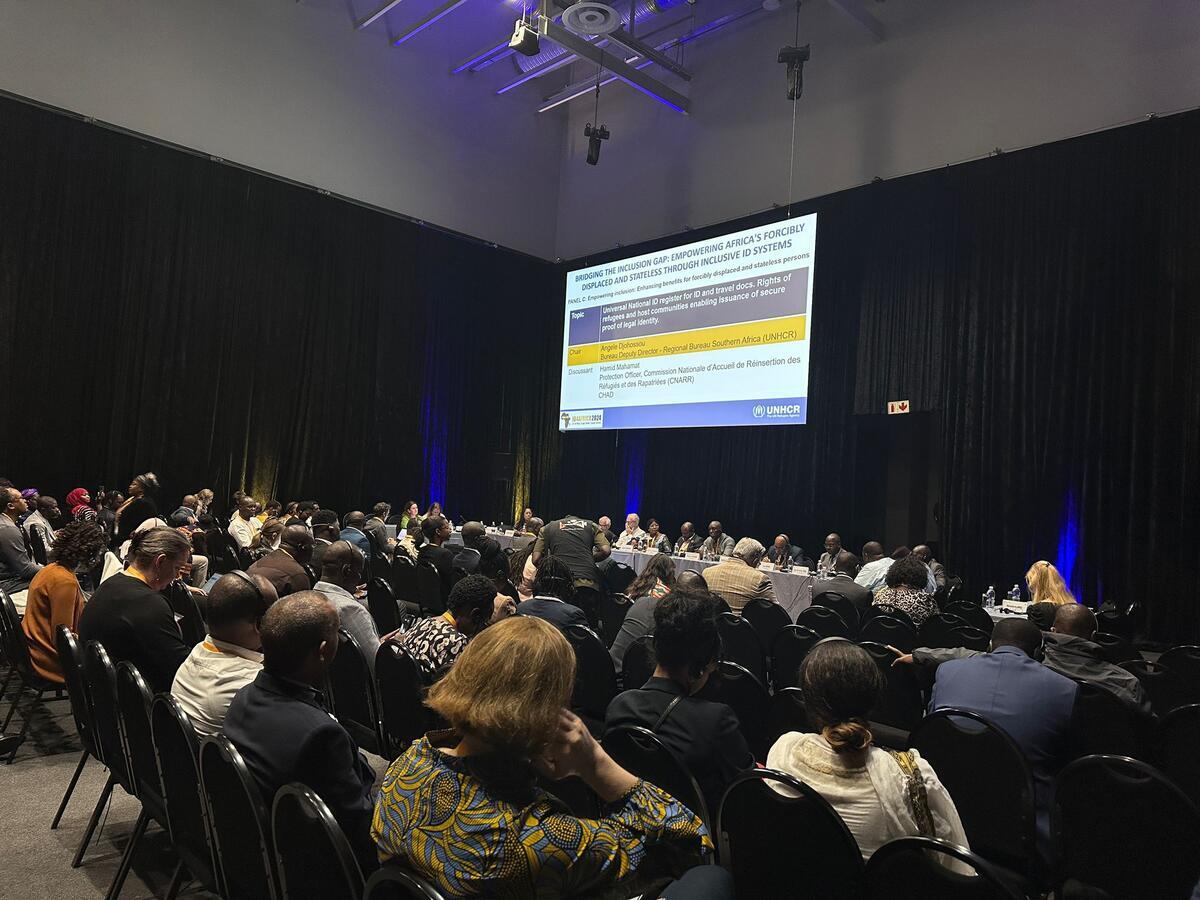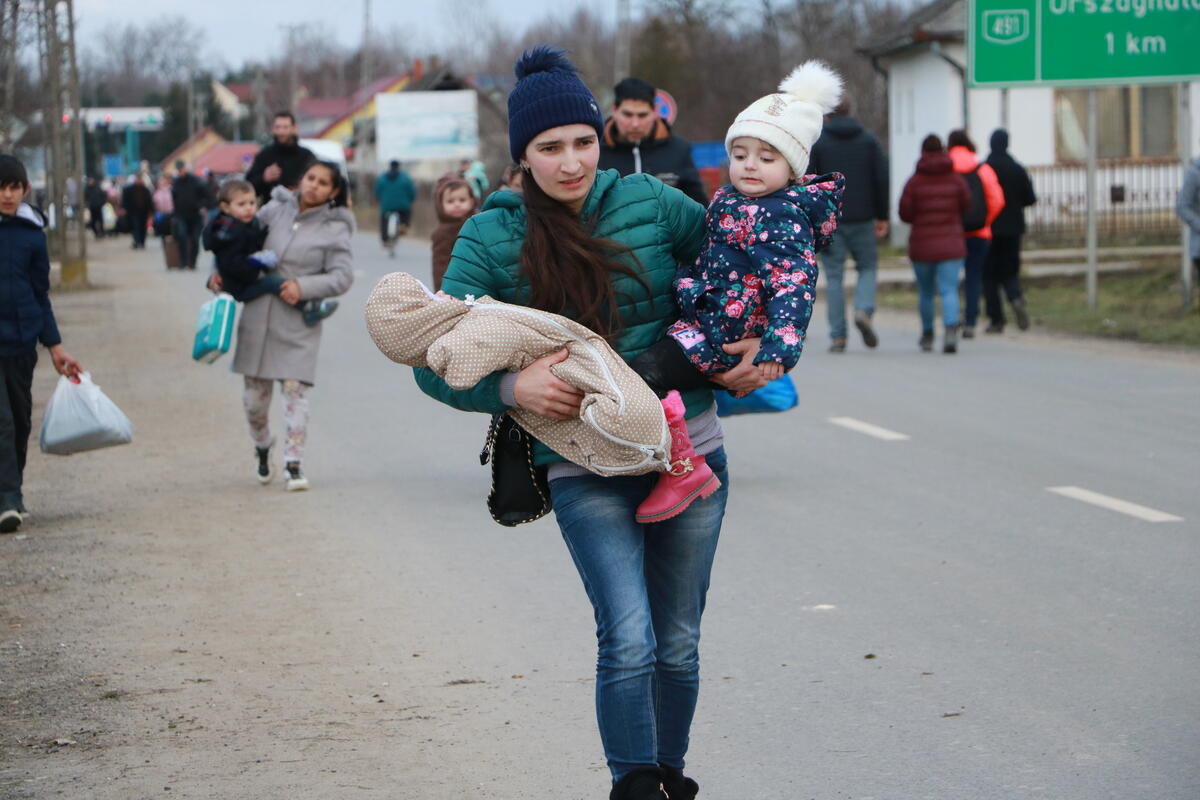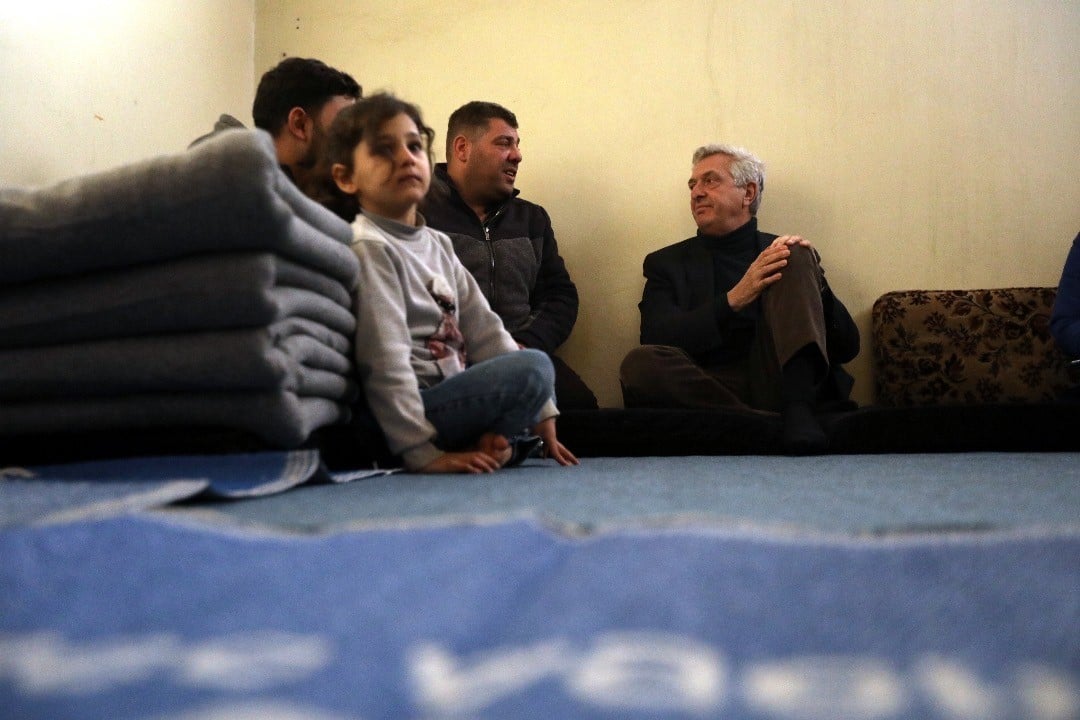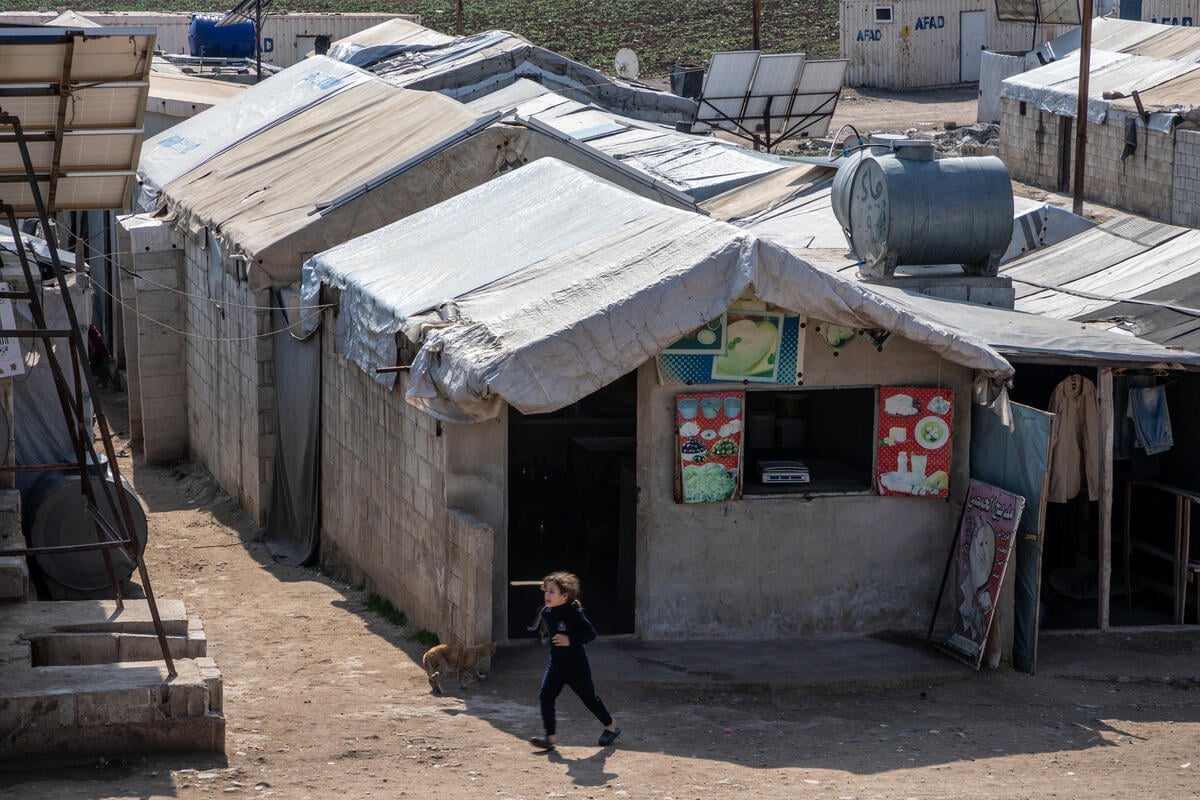UNHCR welcomes commitments at ID4Africa 2024 on digital identity gains for displaced people in Africa
UNHCR welcomes commitments at ID4Africa 2024 on digital identity gains for displaced people in Africa

Delegates from across Africa and UNHCR at the ID4Africa 2024 conference in Cape Town, South Africa
CAPE TOWN – UNHCR, the UN Refugee Agency, welcomed on Friday commitments made by various African countries to integrate refugees and stateless people into their national identification systems at the ID4Africa 2024 annual general meeting in Cape Town.
Countries including Chad, Côte d'Ivoire, Ethiopia, Kenya, Rwanda, South Africa, and Zambia highlighted successful and ongoing initiatives such as comprehensive legal frameworks, digital ID programmes, national surveys on statelessness and measures to ensure access to financial and social services at a session led by UNHCR. Participants agreed that digital identity and related services can drive socio-economic progress for displaced populations in Africa and beyond.
“Our participation in this event underscores our commitment to our Digital Transformation Strategy, which is the backbone of our identity initiatives,” said Chansa Kapaya, UNHCR’s Director of the Regional Bureau for Southern Africa. “This strategy guides us in implementing systems that benefit all, particularly those facing forced displacement.”
The workshop, attended by governments, policymakers, development agencies, civil society and industry experts, focused on strategies to empower Africa’s forcibly displaced and stateless populations through inclusive digital ID systems and understanding the present situation to measure progress and identify gaps, thereby enabling more effective interventions.
Specifically, participants focused on steps to create legal frameworks to integrate forcibly displaced and stateless people into national identification systems, ensuring compliance with international standards; discussing measures to ensure the inclusion of refugees in national digital ID systems, drawing insights from successful initiatives like Ethiopia’s National Digital ID; and showcasing the benefits on mobility, financial inclusion, and economic development of including refugees in government-led identification systems.
Governments and partners showcased progress in enhancing identity systems to protect refugees and foster their inclusion in national systems. Key initiatives announced or reinforced included facilitating seamless integration between refugee and national ID systems and improving service delivery; rolling out measures to allow forcibly displaced people to open bank accounts and acquire SIM cards using refugee IDs; issuance of Refugee Convention Travel Documents; and ensuring birth registration and certification for all forcibly displaced and stateless people.
Angèle Djohossou, Bureau Deputy Director for the Regional Bureau for Southern Africa, said that, “ensuring access to recognized proof of legal identity is crucial for safeguarding the rights and protection of the displaced in their host countries and advancing solutions within an inclusive digital society." She stressed the importance of integrating these individuals into national identification systems, aligning with international standards and enhancing their digital participation.
Dr. Joseph J. Atick, Executive Chairman of ID4Africa, said: “For displaced individuals, identification is a matter of survival. The workshop facilitated by UNHCR at ID4Africa 2024 has been one of the most impactful policy events we have hosted.”
UNHCR and ID4Africa will continue to promote collaboration and knowledge exchange among African states, with support from civil society and other actors. The objective remains to ensure every forcibly displaced and stateless person acquires recognized legal identity by integrating them into national digital ID systems. This integration will facilitate effective access to national services and the digital economy, ensuring that no one is left behind.
Media contacts:
- For UNHCR: Simon Pierre Diouf, dioufs@unhcr.org, +45 713 46 001
- For ID4Africa: Shauna Taylor, s.taylor@id4africa.com, +86 186 1692 5233
For more information:
About UNHCR
UNHCR, the UN Refugee Agency, leads international action to protect people forced to flee their homes because of conflict and persecution. UNHCR delivers life-saving assistance like shelter, food and water, helps to safeguard fundamental human rights, and develops solutions that ensure people have a safe place to call home where they can build a better future. We also work to ensure that stateless people are granted a nationality.
About ID4Africa
Founded in 2014, ID4Africa is an identity-for-all Movement dedicated to helping African nations develop robust and responsible identity ecosystems in the service of socio-economic and digital development, and humanitarian action. Our primary objective is to build and support the identity community in Africa by being a trustworthy platform for knowledge exchange, strategic capacity-building and collaboration to ultimately assist nations in making informed strategic decisions while respecting their national sovereignty. In doing so, we identify Africa’s needs and priorities through intensive grassroots engagements with our 48 member countries. We source, from Africa and the global identity community, ideas, experiences, and expertise that are responsive to those needs. We then curate these findings into trustworthy knowledge that we share through our various convening platforms (Annual General Meetings, LiveCasts, etc.) to accelerate development.
ID4Africa serves as the voice of Africa, promoting inclusion, freedom of choice and ensuring that the Continent’s needs and realities are well represented in the global discourse on matters concerning development. In addition, the Movement advocates identity-for-all, not just as a legal right (consistent with SDG 16.9), but also as a practical necessity for empowering people in their daily lives. The Movement believes inclusive identity schemes built on the respect of human rights and privacy are essential for economic growth and for digital transformation of society for the benefit of all.









